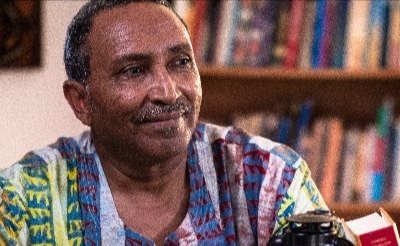Are Ethiopia and Eritrea on the Way to War?

By Mohamed Kheir Omer, a researcher and writer based in Oslo, Norway
Summarized by Sumaya Sayed
From 2018 to 2023, the dynamics between Eritrea and Ethiopia have veered from hostility to cooperation then toward the brink of war, affected by the regional politics and Ethiopia’s ambitious quest to regain access to the Red Sea, which it lost in 1991 after Eritrea’s independence.
On Oct. 13, Abiy addressed the parliament, highlighting the Red Sea’s importance for Ethiopia’s future. This revelation unsettled neighbouring countries such as Djibouti and Somalia, and even the United States.
In July 2018, both countries announced an end to the state of war and agreed to restore diplomatic relations, reopen flights, and facilitate trade by opening their borders.
Although Abiy was awarded the Nobel Peace Prize in 2019, but a few months, the border was once again closed. Subsequently, a devastating joint military campaign was launched against Tigray resulting in a large-scale humanitarian crisis.
Amid global attention on the U.S. election in 2020, Abiy went to war with the TPLF. There are concerns that he might target Eritrea now amid the world’s focus on Gaza. He has always been keen to solve political problems through military means, in his quest for Ethiopia’s glory, with the Red Sea to face Isaias Afwerki who may boost support to Amhara militias and the Oromo Liberation Army to weaken Abiy.
An outbreak of war could allow Ethiopia an opportunity to recapture areas under Eritrean occupation or controlled by Amhara militias. Additionally, the residual TPLF forces, about 200,000 of whom have not been disarmed yet, might attempt to regain territories they believe constitutionally belong to them.
The war may have killed about 600,000 people. More than 1 million people are estimated to remain internally displaced from the Tigray war. Post-conflict recovery in Ethiopia is estimated to cost $20 billion.
The ongoing conflict in the Amhara region of Ethiopia is rooted in long-standing grievances that date back to 1991 when the TPLF took power in Ethiopia. The fighting in the Amhara region escalated in April this year when the Amhara militia known as Fano controlled big cities in the region and broke into several prisons releasing inmates.
In June 2021, when Abiy was forced to withdraw his troops from Tigray, Eritrean forces were not notified in advance, which cost them lives and caused friction.
Eritrea, meanwhile, faces international isolation, with many countries keen to see Isaias gone. It
disapproved of Abiy’s response to Western pressures, including investigations into war crimes by the Ethiopian Human Rights Council and the Office of the United Nations High Commissioner for Human Rights. Even security officials were singled for sanctions from both the United States and the European Union. Meanwhile, Ethiopian entities were not subjected to similar sanctions.
The rift between the two countries further deepened following the signing of the peace agreement between the TPLF and the federal government in November 2022, in which neither Eritrea nor the leaders of the Amhara region were represented, so they felt betrayed by Abiy after he signed the Pretoria Peace Agreement.
The Amhara situation is pivotal in this interstate conflict. Both Eritrea and the Amhara militias felt betrayed by Abiy after he signed the Pretoria Peace Agreement.
The Amhara militias are resolute in holding onto the territories they retook during the Tigray conflict, known as Welkait-Tsegede by the Amhara and western Tigray by the Tigrayans. The potential return of these regions to the TPLF is perceived as a threat, as it could grant the TPLF access to Sudan—a development viewed with concern by Eritrea. This is because Tigray would be able to get direct assistance through Sudan, or even attack Eritrea via Sudan if war breaks out.
The current trajectory suggests a probable collision course that could have devastating regional implications. The situation is fluid, and careful diplomacy by the African Union and the international community is crucial to prevent a catastrophic outcome. The last thing the Horn of Africa needs is another war.



